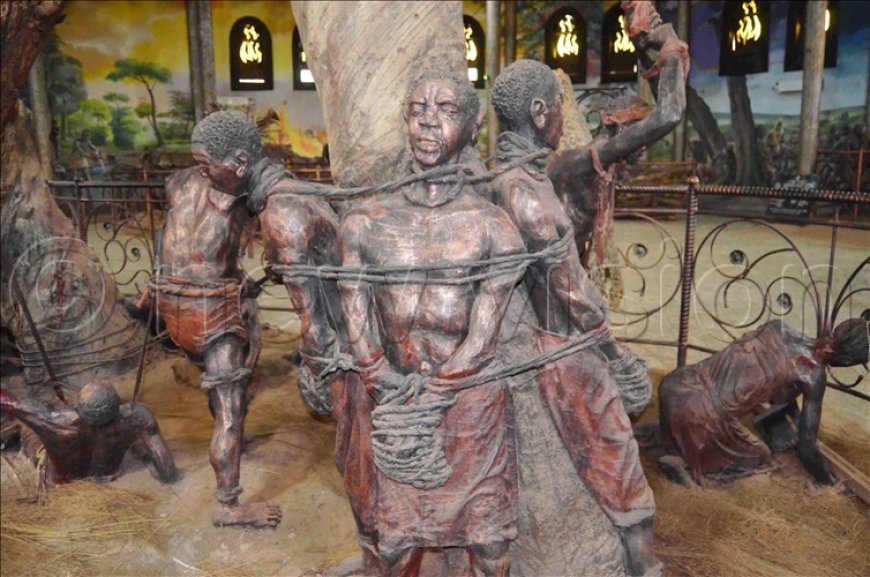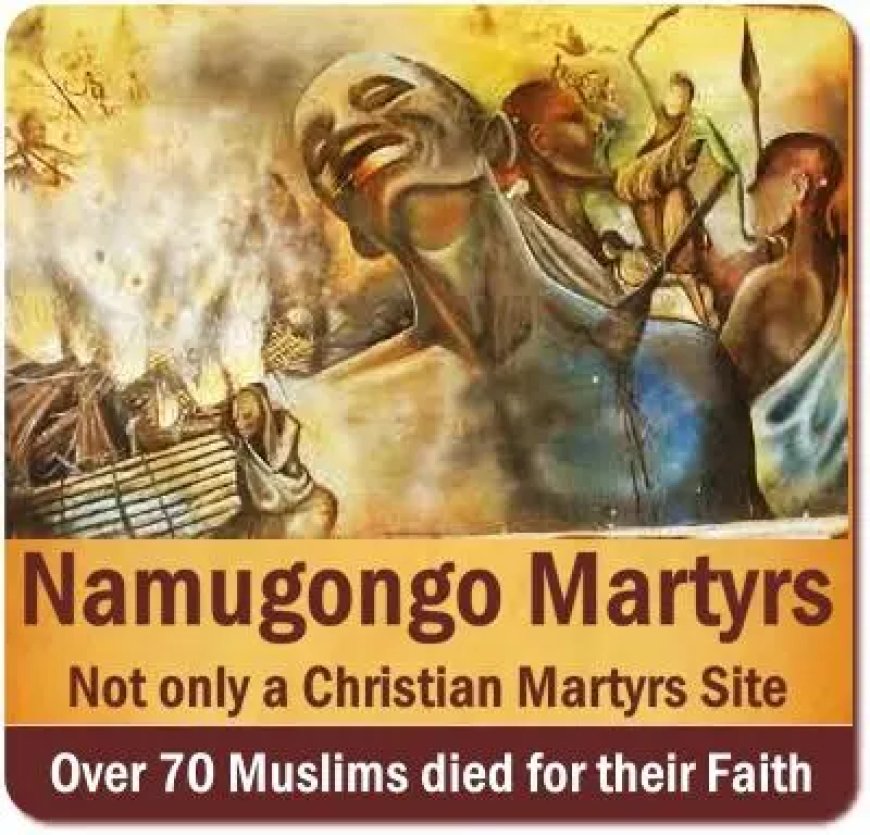The Untold Story of Uganda Muslim Martyrs – Wabusimba Amiri
In the annals of Ugandan history, the world has widely acknowledged the tragic tale of the Uganda Christian Martyrs, fewer people are aware of the equally harrowing and inspiring story of the Uganda Muslim Martyrs.

In the annals of Ugandan history, the world has widely acknowledged the tragic tale of the Uganda Christian Martyrs, fewer people are aware of the equally harrowing and inspiring story of the Uganda Muslim Martyrs. A decade before the Christian martyrs made their final journey to Namugongo, over 70 Muslim men met a similar fate, marking a poignant chapter in Uganda's history that remains largely untold.

In the mid-19th century, Buganda Kingdom was a melting pot of various religious influences, including traditional African beliefs, Islam, and Christianity. The spread of Islam in Buganda began in earnest during the reign of Kabaka Mutesa I, who ruled from 1856 to 1884. Initially, Kabaka Mutesa I welcomed Muslims and even converted to Islam himself, promoting the religion within his kingdom with the construction of a mosque at Kasubi royal tombs. However, as the religious landscape became increasingly complex and contentious, tensions arose.
It’s said that around 1876, Kabaka Mutesa I's attitude towards Muslims shifted dramatically. This change in sentiment was influenced by a combination of political maneuvering, fear of losing power, and external pressures from European powers who were promoting Christianity. Mutesa I began to view the growing influence of Islam as a threat to his authority and the traditional structures of his kingdom.
In a drastic turn of events, Mutesa I ordered the persecution of Muslims. The Kabaka's men rounded up over 70 Muslims, who were then subjected to brutal treatment, undertake a long and tortuous journey to Namugongo, the same site where the Christian martyrs would later meet their fate. Upon arrival, they were brutally burned in an inferno, their sacrifices marking a dark period of religious persecution in Buganda.
The journey to Namugongo was grueling, with the captured Muslims enduring extreme physical and emotional torment. Upon arrival, these men were subjected to a cruel and public execution. They were burned alive in a large inferno, a horrific spectacle meant to serve as a deterrent to those who might oppose the Kabaka's rule or deviate from his preferred religious path.
The story of the Uganda Muslim martyrs is not just one of tragedy but also of profound faith and resilience. The martyrdom of these Muslims occurred approximately ten years before the more widely known execution of the Christian martyrs by Kabaka Mwanga II, Mutesa I's successor. The Christian martyrs' story has been commemorated annually on June 3rd, recognized as Martyrs' Day, and has overshadowed the earlier tragedy of the Muslim martyrs. Despite this, the story of the Uganda Muslim Martyrs remains a significant part of the country's religious and cultural history. The courage and faith of these Muslim men, who chose to face death rather than renounce their beliefs, continue to inspire many in Uganda and beyond.
Uganda Muslim Supreme Council (UMSC) plays a crucial role in overseeing and supervising Muslim affairs in the country. The council's efforts include promoting religious tolerance, unity, and education among Muslims, ensuring that the legacy of the martyrs is remembered and honored. However, the Muslim community in Uganda continues to face internal challenges, with divisions and conflicts occasionally surfacing. The UMSC’s ongoing efforts are a testament to the enduring spirit of the Uganda Muslim martyrs, whose sacrifices continue to inspire and guide the community.
The story of the Uganda Muslim martyrs is a powerful reminder of the resilience and steadfastness of faith in the face of adversity. As Uganda continues to navigate its religious and cultural dynamics, the legacy of these early martyrs serves as a beacon of faith and perseverance, reminding all of the cost of religious freedom and the enduring strength of the human spirit.
By: Wabusimba Amiri
Diplomatic Student, Communication Specialist, Journalist and Human Right Activist.
What's Your Reaction?


















































































